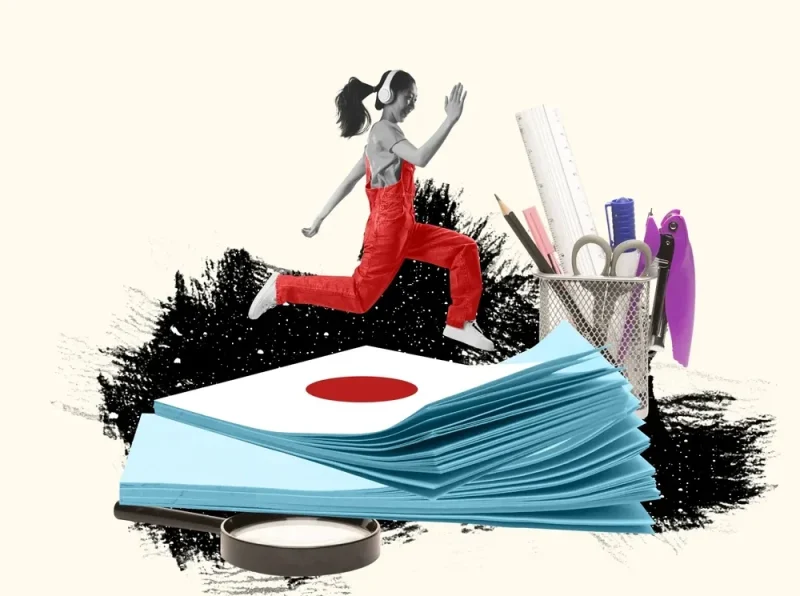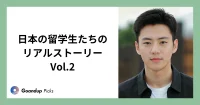Ten commonly mistaken business honorifics! Japanese to watch out for in job hunting and at work

「了解しました」「なるほどですね」「大丈夫です」
これらの言葉は、日常会話だけでなく、ビジネスシーンでも頻繁に耳にする言葉ですよね。特に、新社会人や就活生の皆さんは、上司や先輩、面接官との会話の中で、何気なく使ってしまっているかもしれません。しかし、これらの言葉の使い方、実は正しくない場合があるのをご存知でしょうか?
適切な敬語を使うことは、円滑なコミュニケーションを図る上で非常に重要です。特に、ビジネスの場では、相手に失礼のないよう、言葉遣いには細心の注意を払う必要があります。
間違った敬語を使ってしまうと、相手に無礼な印象を与えてしまったり、自分の教養のなさを露呈してしまう可能性もあります。
そこで今回は、ビジネスシーンでスムーズかつ適切なコミュニケーションをするために必要な、正しい敬語の使い方を解説します。これから紹介する例文を参考に、日頃の言葉遣いを見直してみてくださいね。
▼Goandup Picks Click here for recommended articles!
- Required before studying abroad! Goandup Nihongo+, an online Japanese language learning service
- This page introduces services for foreigners who wish to study in Japan or improve their Japanese language skills to learn Japanese online.
- Goandup Salon" community for foreigners living in Japan
- We introduce an online community where foreigners living in Japan can exchange information and interact with each other to support their life in Japan.
- Goandup Study" supports foreigners who want to study in Japan.
- This section introduces study abroad support services that provide comprehensive support to foreigners who wish to study in Japan, from preparation for study abroad to living in Japan.
- Where can I buy a prepaid SIM in Japan? Recommended SIM cards for foreigners are also introduced.
- How to purchase a prepaid SIM and suitable SIM cards for foreigners.
- The Complete Guide to Pocket Wi-Fi in Japan for Foreigners!
- We introduce how to select and recommend pocket Wi-Fi products that can be used conveniently in Japan.
- The Complete Guide to Finding a Job in Japan! Finding a job, changing jobs, and part-time work for foreigners
- This site provides foreigners who want to work in Japan with comprehensive information on how to find a job, recommended job sites, and other information necessary to find a job.
仕事中や就活でよく間違いやすいビジネス敬語10選

ビジネスシーンでは適切な敬語を使いこなすことが求められます。社会人経験の浅い方や、就職活動中の学生の皆さんは、敬語の使い方に不安を感じているかもしれません。実際、ビジネスの現場では、敬語の使い方を間違えている人が少なくないのが現状です。
例えば、「御社」と「貴社」の使い分け、「拝見する」と「拝読する」の違いなど、細かいニュアンスの違いを理解していないために、間違った敬語を使ってしまうケースがよく見られます。
敬語の使い方を誤ると、相手に与える印象が大きく変わってしまうため、正しい敬語の使い方を身につけることは、ビジネスパーソンにとって必須のスキルと言えるでしょう。
それでは、具体的によく間違えやすい敬語の例を見ていきましょう。以下の10個の例文は、ビジネスシーンでよく耳にする言葉ですが、実は使い方を間違えている可能性があります。これらの言葉の正しい使い方を理解して、ビジネスシーンで活かしていきましょう。
間違いやすいビジネス敬語(1)了解しました
「了解しました」は、ビジネスシーンでよく耳にする言葉の一つです。特に、上司や先輩から指示や説明を受けた際に、「了解しました」と返答している方も多いのではないでしょうか。
しかし、「了解」という言葉は、本来、目上の人に対して使うのは適切ではありません。「了解」は、【同等の立場の人または自分より目下の人】に対して使う言葉だからです。上司や先輩に「了解しました」と言ってしまうと、敬語としてはカジュアルすぎて、失礼に当たる可能性があります。
では、目上の人に対して使うべき言葉は何でしょうか。「了解」の代わりに、『承知いたしました』や『かしこまりました』と言い換えるのが適切です。これらの言葉は、丁寧で礼儀正しい印象を与えます。
例えば、上司から「今日中にこの資料を完成させてください」と指示された場合、「了解しました」と返答するのではなく、「承知いたしました。必ず今日中に完成させます」と言い換えてみましょう。相手に対する敬意が伝わり、好印象を与えることができるはずです。
間違いやすいビジネス敬語(2)なるほどですね
「なるほどですね」は、相手の説明や意見に対して理解を示す言葉として、ビジネスシーンでもよく使われます。特に、就職活動の面接や、取引先との商談など、重要な場面で使われることが多いのではないでしょうか。
しかし、「なるほど」は本来、敬語ではありません。「なるほど」は、相手の話を聞いて、自分なりに納得したり、理解が深まったりした時に使う言葉です。つまり、「なるほど」は、自分自身の理解度を表現する言葉なのです。
そのため、「なるほどですね」と言ってしまうと、相手の話を十分に理解できていないのに、表面的に同意しているだけのように聞こえてしまう恐れがあります。特に、重要な商談や面接の場では、相手に失礼な印象を与えかねません。
では、「なるほど」の代わりにどのような言葉を使えば良いのでしょうか。適切な言い回しとしては、相手の説明を復唱しながら、理解を示すことです。例えば、「なるほど、つまり○○ということですね」と言い換えると、相手の話をきちんと聞いて理解したという姿勢を示すことができます。
また、単に「なるほど」と言うのではなく、「なるほど。それでは、次の点について教えていただけますか」など、会話を前に進める言葉を添えるのも効果的です。相手の話を理解した上で、次のアクションにつなげる姿勢を示すことができるでしょう。
間違いやすいビジネス敬語(3)大丈夫です
「大丈夫です」は、ビジネスシーンでも日常会話でも頻繁に使われる言葉です。特に、上司や先輩から仕事の進捗状況を確認された時や、取引先から問い合わせを受けた時など、「問題ありません」という意味で使われることが多いですよね。
しかし、「大丈夫です」は、本来カジュアルな言葉遣いであり、ビジネスの場で使うには適切ではないと言われています。特に、目上の人に対して「大丈夫です」と言ってしまうと、軽率で適当な印象を与えてしまう恐れがあります。
では、「大丈夫です」の代わりにどのような言葉を使えば良いのでしょうか。ビジネスシーンでは、より丁寧な言い回しを使うことが求められます。例えば、「問題ございません」「別段問題はございません」など、キチンとした言葉遣いを心がけましょう。
また、上司や取引先から問い合わせを受けた時は、単に「大丈夫です」と言うだけでなく、具体的な状況を説明することが大切です。例えば、「ご指摘の点については、すでに対応済みでございます。本日中に修正版をお送りいたしますので、ご確認いただけますと幸いです」など、相手の問い合わせに真摯に応答する姿勢を示しましょう。
「大丈夫です」は、友人同士の会話では問題ありませんが、ビジネスの場では使わないように注意しましょう。相手に失礼のない、丁寧な言葉遣いを心がけることが大切です。
間違いやすいビジネス敬語(4)お座りください
「お座りください」は、来客者に席についていただく時によく使われる言葉です。特に、接客業では頻繁に使われる言葉ですよね。しかし、「お座りください」は、実は目上の人に対して使うのは適切ではないと言われています。
その理由は、「お座り」という言葉が、本来は動物に対して使われる言葉だからです。例えば、犬に「お座り」と言って、座らせる時に使われるのが一般的です。そのため、人に対して「お座りください」と言ってしまうと、相手を見下しているような印象を与えてしまう恐れがあります。
では、「お座りください」の代わりにどのような言葉を使えば良いのでしょうか。来客者に席についていただく時は、「お掛けください」「こちらにお掛けください」などと言い換えるのが適切です。「お掛けください」は、丁寧で礼儀正しい印象を与える言葉遣いです。
また、上司や取引先など、目上の人に席を勧める時は、「こちらへどうぞ」「こちらのお席へどうぞ」など、より丁寧な言い回しを使いましょう。
間違いやすいビジネス敬語(5)御社 と 貴社
「御社」と「貴社」は、ビジネスシーンでよく使われる言葉です。どちらも相手の会社を指す敬語ですが、実は使い方が異なると言われています。
「御社」は、自分の会社から相手の会社に対して使う言葉です。例えば、「御社の製品は、品質が高くて評判が良いですね」のように、自分の会社の立場から相手の会社を指す際に使います。
一方、「貴社」は、相手の会社から自分の会社に対して使う言葉です。例えば、「貴社の対応には、いつも感謝しております」のように、相手の会社の立場から自分の会社を指す際に使います。
つまり、ビジネスシーンでは、自分の会社の立場から見て、相手の会社を「御社」、自分の会社を「弊社」と表現するのが一般的です。
間違いやすいビジネス敬語(6)拝見する と 拝読する
「拝見する」と「拝読する」は、ビジネスシーンでよく使われる言葉です。どちらも丁寧な言葉遣いとして知られていますが、実は使い方が異なると言われています。
「拝見する」は、実物を見る際に使う言葉です。例えば、商品サンプルや設計図面など、目で見て確認する際に「拝見する」を使います。一方、「拝読する」は、文書を読む際に使う言葉です。例えば、メールやレポート、企画書など、文章を読む際に「拝読する」を使います。
特に、メールのやり取りで間違えやすいのが、添付ファイルを確認する際の言葉遣いです。添付ファイルを開いて中身を確認する際は、「拝読する」が適切です。「拝見する」と言ってしまうと、実物を見たような印象を与えてしまいます。
間違いやすいビジネス敬語(7)よろしくお願いします
「よろしくお願いします」は、ビジネスシーンで頻繁に使われる言葉の一つです。特に、初対面の挨拶や依頼の際に使われることが多いですよね。しかし、「よろしくお願いします」は、目上の人に対して安易に使うのは失礼になる場合があると言われています。
その理由は、「よろしくお願いします」が、やや気安い印象を与えてしまうからです。目上の人に対しては、より丁寧な言葉遣いが求められます。
では、「よろしくお願いします」の代わりにどのような言葉を使えば良いのでしょうか。目上の人に対しては、「よろしくお願い申し上げます」や「何卒よろしくお願い申し上げます」等の丁寧な表現を使うのが適切です。これらの言葉は、相手に対する敬意を示すことができ、好印象を与えることができます。
間違いやすいビジネス敬語(8)申し訳ございません
「申し訳ございません」は、ビジネスシーンで頻繁に使われる言葉の一つです。特に、お詫びの際によく使われますよね。しかし、「申し訳ございません」は、軽微なミスやマナー違反の際に安易に使うのは適切ではないと言われています。
その理由は、「申し訳ございません」が、形式的な印象を与えてしまうからです。軽微なミスやマナー違反の際に、形式的なお詫びの言葉を使ってしまうと、誠意が感じられないと受け取られる恐れがあります。
では、軽微なミスやマナー違反の際は、どのような言葉を使えば良いのでしょうか。「失礼いたしました」や「不快な思いをさせてしまい、申し訳ございません」等の言葉を使うのが適切です。これらの言葉は、自分の非を認めつつ、相手への配慮を示すことができます。
間違いやすいビジネス敬語(9)ご苦労様です
「ご苦労様です」は、ビジネスシーンでよく耳にする言葉の一つです。特に、同僚や部下に対して使われることが多いですよね。しかし、「ご苦労様です」は、目上の人や取引先の人に対して使うのは失礼にあたると言われています。
その理由は、「ご苦労様」が、相手の労力を認めつつも、やや上から目線の印象を与えてしまうからです。目上の人や取引先の人に対しては、より丁寧な言葉遣いが求められます。
では、「ご苦労様です」の代わりにどのような言葉を使えば良いのでしょうか。目上の人や取引先の人に対しては、「お疲れ様です」や「いつもありがとうございます」等の言葉を使うのが適切です。これらの言葉は、相手の労力を認めつつ、敬意を示すことができます。
間違いやすいビジネス敬語(10)ご確認ください
「ご確認ください」は、ビジネスシーンでよく使われる言葉の一つです。特に、メールのやり取りで、相手に確認を求める際によく使われますよね。しかし、「ご確認ください」は、目上の人に対して使うのは不適切だと言われています。
その理由は、「ご確認ください」が、やや命令口調の印象を与えてしまうからです。目上の人に対しては、より丁寧な言葉遣いが求められます。
では、「ご確認ください」の代わりにどのような言葉を使えば良いのでしょうか。目上の人に対しては、「ご確認いただけますと幸いです」や「お手数ですが、ご確認いただけますでしょうか」等の丁寧な言い回しを使うのが適切です。これらの言葉は、相手に確認を求めつつも、敬意を示すことができます。
For those of you who want to further your studies at a Japanese language school

The Japanese language attracts attention from around the world for its rich expressiveness and profound culture. From movies, music, and literature to everyday conversation, learning Japanese is not only a way to acquire a new language, but also a gateway to a deeper cultural understanding and a broader perspective.
For those of you who want to study Japanese more seriously, enter higher education in Japan, or find a job in Japan, taking your Japanese language skills to the next level is the first step in turning your dreams into reality. There are approximately 700 Japanese language schools in Japan with various characteristics, but it is not easy to select the best school for you.
Therefore, we will do our best to help you choose the perfect Japanese language school to realize your goals and dreams! If you have any questions or concerns about Japanese language schools, please feel free to contact us using the inquiry form below.
We will provide you with the best support to meet your Japanese language learning goals. We hope that our support will make your Japanese language study more fulfilling and fruitful.
summary
ビジネスシーンで適切な敬語を使いこなすことは、円滑なコミュニケーションを図る上で非常に重要です。しかし、日常会話で頻繁に使われている言葉の中には、ビジネスの場では不適切な言葉も多くあります。
この記事では、ビジネスシーンでよく耳にする言葉の中から、実は間違いやすい敬語の例を10個取り上げました。「了解しました」「なるほどですね」「大丈夫です」などは、ついつい使ってしまいがちですが、使い方を間違えると相手に失礼な印象を与えてしまう恐れがあります。適切な敬語を使うためには、言葉の意味や使い方を正しく理解することが大切です。
ビジネスの場では、言葉遣いひとつで信頼関係が築けるかどうかが決まります。相手に敬意を払い、謙虚な姿勢で接することを心がけましょう。正しい敬語の使い方を身につけることで、ビジネスシーンでの円滑なコミュニケーションを図ることができるはずです。
日頃から自分の言葉遣いを見直し、適切な敬語を使えるよう意識することが大切ですね。この記事で紹介した例文を参考に、ビジネスシーンで活かせる言葉遣いを身につけていきましょう。
さらに、敬語の使い方や使う場面についてより詳しく知りたい方は、以下の記事もご覧ください。
この記事では、ビジネスシーンだけでなく、日常生活でも役立つ敬語の使い方を、一覧表と例文を交えてわかりやすく解説しています。ぜひ参考にして、敬語の使い方をマスターしましょう。






